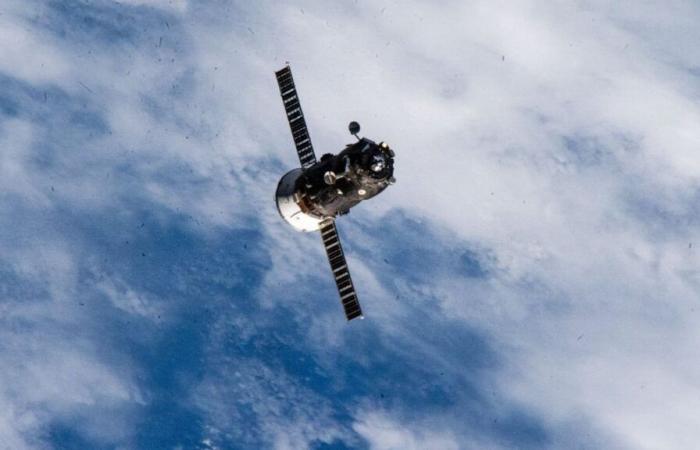
What happened on board the ISS last Saturday? A Progress 90 cargo ship sent by the Russian space agency Roscosmos had just docked with the space station's Poisk module to bring three tons of food, equipment, fuel and other goods.
« After opening the hatch of the Progress spacecraft, Roscosmos cosmonauts noticed an unexpected smell and observed small droplets, prompting the crew to close the Poisk hatch to the rest of the Russian segment », Announced NASA a few hours ago in a statement published on X.
NASA wants to be reassuring, but…
The American space agency sought to be reassuring by indicating that air quality tests had revealed nothing abnormal and that the ISS crew had undertaken to open the hatch of the Poisk module to access the freighter Progress. “(…) all other space station operations are proceeding as planned », assures NASA. A seemingly minor incident for which no explanation has been provided until now.
Except that, according to the information reported by Ars Technicathe smell that emerged from the cargo ship when its hatch was opened was “ toxic », encouraging Russian cosmonauts to put on protective equipment and then activate an air purification procedure.
A smell that spread throughout the ISS
Always according to Ars TechnicaNASA astronaut Don Pettit made was of a smell ” similar to that of a spray paint » in the Node 3 module of the American segment, without confirming that it came from the Progress cargo ship.
It is quite likely that the official explanations stick to NASA's comment for which everything is back to normal. This type of incident is not new with regard to Russian vessels. In February 2023, a Progress freighter lost pressure in its external cooling system.
Already leaks on the Progress cargo ships and Soyuz capsules
A few months earlier, in December 2022, the Soyuz MS-22 capsule presented a significant leak after the impact of a micrometeorite. The incident led to the cancellation of the return to Earth of cosmonauts Sergey Prokopyev and Dmitri Petelin and of NASA's Frank Rubio with this vehicle, extending their mission by several months.





